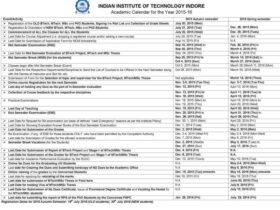The Labour celebration’s radical proposals to shake up England’s education device have thrust academic debate into the highlight, shattering the submit-millennial political consensus of what’s great for our children. A Labour government could dismantle the foundations of the cutting-edge training panorama – leaving behind tests on the stop of primary college, replacing the faculties inspectorate, and abolishing private colleges altogether. Labor claims it’s the birthday party fighting for social justice in preference to social mobility. It supplies an exceptional vision to the Conservatives, who want to create extra locations at selective grammar colleges.
But how do those guidelines stack up towards the difficult evidence? What’s undeniable is that we need to reconsider the modern training method. Amid stagnating social mobility, schools retain the wonderful wish of leveling a grotesquely choppy gambling field. But the achievement hole among poorer children and their better-off friends remains stark. Reviews of development on narrowing the distance have followed an increasing number of futile tones.
It’s an impossible venture for instructors. Classroom dividers are pushed by using inequalities outdoors the college gates. It’s a fingers race that the rich are destined to win – look at the boom in non-public tutoring. Education acts as a positional top – it’s not what qualifications you have got that topic; however, how an awful lot better they’re than the ones of other scholars. Schools have worked wonders to reach more youngsters on free meals passing countrywide faculty benchmarks at age 16. Still, youngsters from privileged homes have leaped further in advance within the educational stakes.

Nationalizing non-public schools wouldn’t demolish the divide between training’s haves and feature-not – even if you could triumph over the criminal and monetary boundaries required for one of these dramatic flows. Middle-elegance dads and moms could nonetheless manipulate to benefit within the nation’s gadget, monopolizing the excellent state schools. To lessen middle-class gain, there could be to roll out lotteries for kingdom faculty admissions and pick students randomly. It is undeniably the maximum equitable means of allocating places to equally deserving candidates. But that’s not likely to win many votes in a trendy election. Promoting social mobility isn’t constantly politically palatable.
In our new e-book, What Works? Research and Evidence for Successful Teaching, we verify the evidence from more than two hundred evaluations of eight 000 studies to offer instructors nice techniques for improving mastering. The only methods relate to what takes place in classrooms between teachers and students – no longer new kinds of faculties or brilliant recent national reforms. The fine college structures stability the accept as true with and aid needed to preserve and develop teachers with the external task required to hold the device to account for our kids’ knowledge. Teachers will let you know; there’s none of the former and all the latter.
Nowhere else has embraced league tables and school inspections pretty much like us. And there is no evidence that Ofsted inspections enhance college effects. Schools are the sufferers of Campbell’s law. This states that something measured with easy facts might be distorted as humans recreate the device to improve their performance. Extra time dedicated to preparing for English, arithmetic, and traditional instructional subjects in league tables has squeezed out issues that include track, art, languages, and bodily education. Teachers “teach to the check,” drilling pupils with fine solutions to questions in all likelihood to come back up in exams.
Rising exam ratings are heralded as proof of progressed requirements, but the quality and breadth of schooling kids get hold of is likely to have declined. How can we rid the device of those accidental results? It’s no longer by way of getting rid of exams but using rebalancing the assessment regime. We want a mix of assessments: some instigated with the aid of teachers to diagnose the precise wishes of the scholars in their classes; a few utilized by faculties to track their progress; a few deployed by researchers to study the effectiveness of different educational tactics, and others used by external our bodies to sample and screen training requirements.
The rising ranges of mistrust amongst instructors, amid the booming enterprise of consultants advising on the way to bypass inspections, show that a greater essential alternate is now required, as Labour has mooted. We need to recollect the type of society we aspire to foster for the subsequent era. Do we need a slim, however efficient range of topics for all, or will we need to guide a breadth of know-how and success across a wealth of issues, which incorporates song, pleasant arts, and drama? Do we want a device that offers a fundamental education for all and alternatives to pursue creative and vocational routes in addition to educational ones?
One thing that each one most important political events agree on is that training should be proof-informed. If we have been to stick strictly to this precept, the most logical step could be to remove training policymaking from political interference altogether, growing an arm’s-length government frame with a strategic remit to oversee faculties. But this is not going to function in an election manifesto any time quickly. The solutions are not likely to come from populist regulations bubbling up from the cauldron of contemporary politics.














